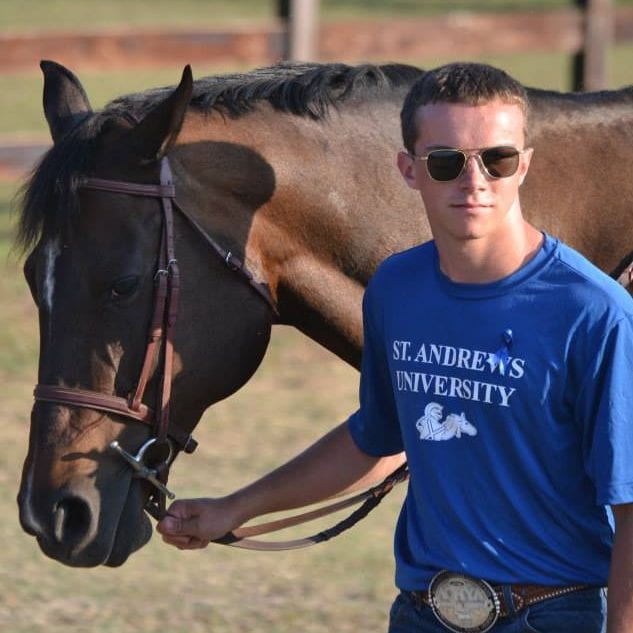The Intercollegiate Horse Show Association, abbreviated IHSA, is an intercollegiate equestrian association that is spread throughout the country over various college campuses. Divisions range from walk-trot to open in four disciplines. IHSA features competition in horsemanship, reining, hunter seat equitation and hunter seat equitation over fences where the horse and rider combination is chosen at random.
The rider is judged on their capability of riding and performing to the best of their abilities on the given horse. This is thought of as leveling the playing field for all riders, as the price and “fanciness” of the horse does not matter, but more the rider’s skills of handling and maneuvering the horse.
Since IHSA is the only collegiate equestrian sport offered for men, many can see a variety of benefits for the men, from getting “guy points” with judges, to simply not having to do hair or makeup like their female teammates.
Many joke that men join the teams to be around more girls. While many men do join the team because of their female friends, many are born into and grow up in the world of horse showing and want to continue it through college. IHSA allows them to keep pursuing the sport they have done all their lives.
GoHorseShow spoke to some men who ride for various IHSA teams, including St. Andrews University, The University of Findlay and Alfred University, and they had a lot to say about being a male equestrian within a predominately female sport.
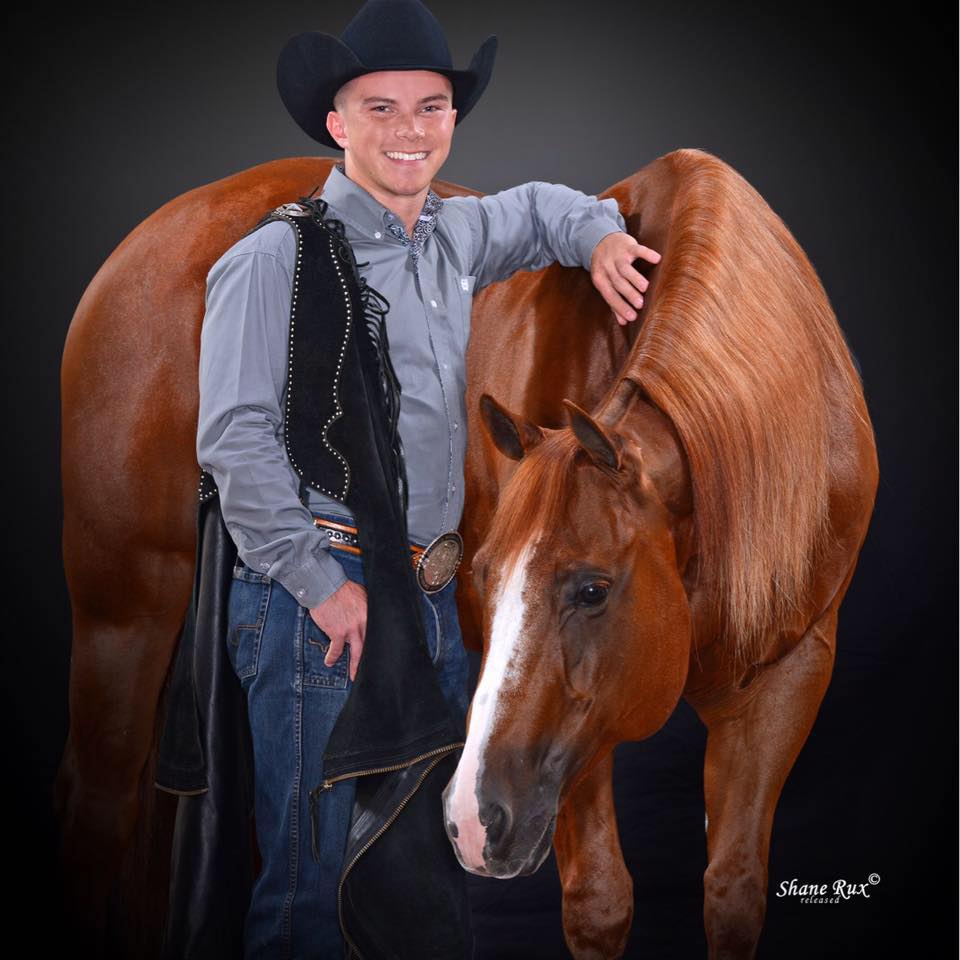 Mark Mowbray, Former IHSA Competitor for St. Andrews University and past AQHYA President – I believe that more youth need to be aware of the option. So many youth are not mindful of the possibility of riding in college. Boys tend to think that there is no option to ride for them due to the increased NCEA activity, and girls that cannot get on an NCEA team ignore IHSA. I wish that the horse show community would have a better understanding of the IHSA and that the NCEA would allow men to compete on their teams. The truth of the matter is, before the NCAA recognized Equestrian as a sport, all collegiate teams were IHSA. IHSA recently celebrated their 51st anniversary. Currently, there are 416 IHSA teams and over 9,000 riders. There are only 22 NCEA teams that can host female riders. IHSA accommodates both male and female.
Mark Mowbray, Former IHSA Competitor for St. Andrews University and past AQHYA President – I believe that more youth need to be aware of the option. So many youth are not mindful of the possibility of riding in college. Boys tend to think that there is no option to ride for them due to the increased NCEA activity, and girls that cannot get on an NCEA team ignore IHSA. I wish that the horse show community would have a better understanding of the IHSA and that the NCEA would allow men to compete on their teams. The truth of the matter is, before the NCAA recognized Equestrian as a sport, all collegiate teams were IHSA. IHSA recently celebrated their 51st anniversary. Currently, there are 416 IHSA teams and over 9,000 riders. There are only 22 NCEA teams that can host female riders. IHSA accommodates both male and female.
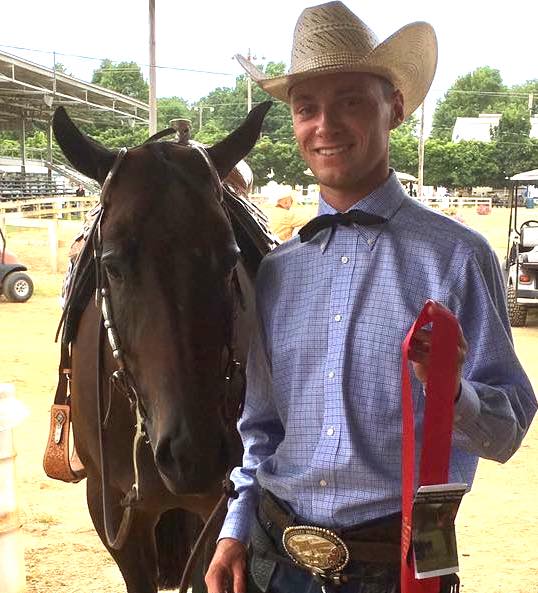 Dillon Vaughn, Competitor for St. Andrews University – I believe that being a male in the IHSA is a benefit because you are unique to the judges. There are not many males compared to the number of females who we compete against, so being a man helps us to stand out to the judges when we compete.
Dillon Vaughn, Competitor for St. Andrews University – I believe that being a male in the IHSA is a benefit because you are unique to the judges. There are not many males compared to the number of females who we compete against, so being a man helps us to stand out to the judges when we compete.
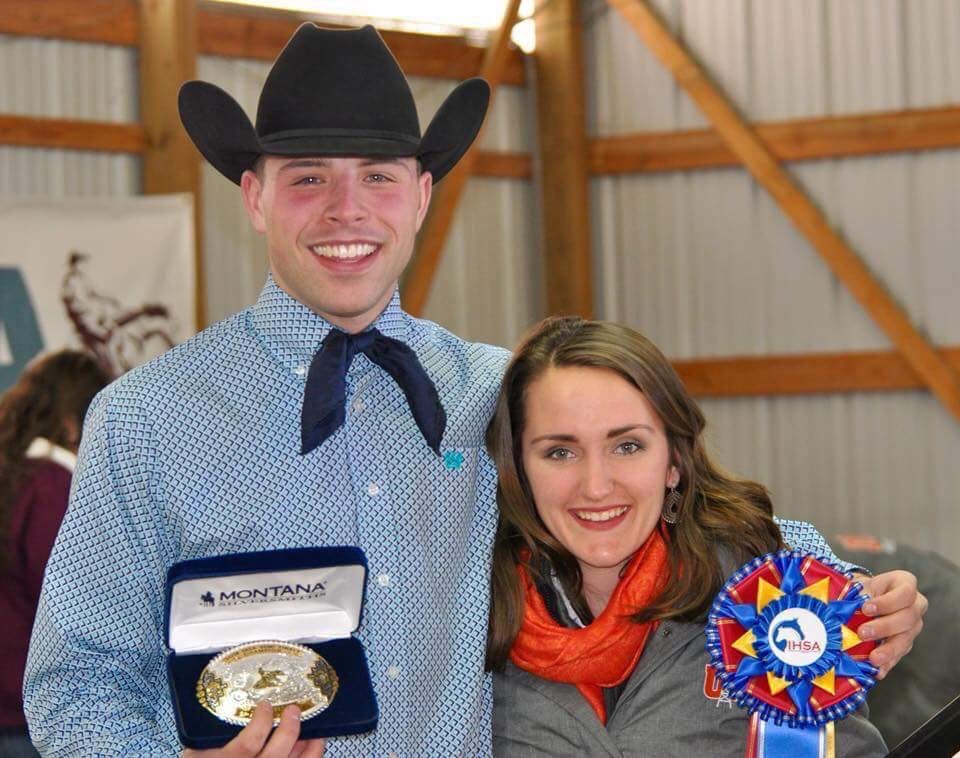 Brandon Morin, Competitor for the University of Findlay – One very cool thing about the IHSA is that they allow both males and females to compete. In the NCEA they only allow women, and with IHSA, the guys are given an opportunity to show at the collegiate level. Going to The University of Findlay, the male to female ratio on the team is always different, but in the last two years, there have been a lot more guys. In the show pen, a lot of times you are the only guy in the class, so you stand out. That can be an excellent thing and a bad thing. If you mess up, you rarely fly under the radar. I do not feel like I have a better chance at winning a class because I am a guy, I have been beaten by very talented girls many times, and I think the judges in IHSA are very fair and can pick out the best rider in the class regardless of their gender. I have seen a growth of guys showing in IHSA. I hope that growth continues because it is a great Association.
Brandon Morin, Competitor for the University of Findlay – One very cool thing about the IHSA is that they allow both males and females to compete. In the NCEA they only allow women, and with IHSA, the guys are given an opportunity to show at the collegiate level. Going to The University of Findlay, the male to female ratio on the team is always different, but in the last two years, there have been a lot more guys. In the show pen, a lot of times you are the only guy in the class, so you stand out. That can be an excellent thing and a bad thing. If you mess up, you rarely fly under the radar. I do not feel like I have a better chance at winning a class because I am a guy, I have been beaten by very talented girls many times, and I think the judges in IHSA are very fair and can pick out the best rider in the class regardless of their gender. I have seen a growth of guys showing in IHSA. I hope that growth continues because it is a great Association.
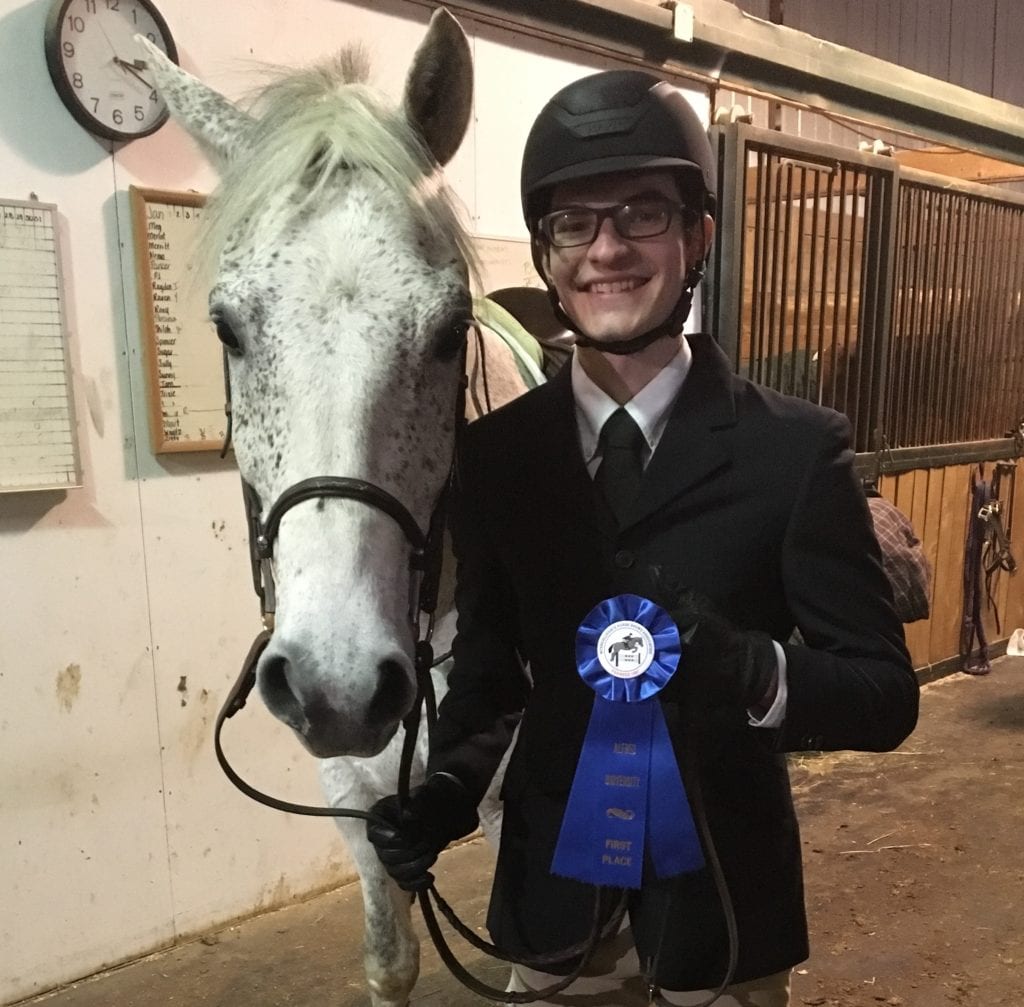 Nicholas Sugg, Competitor for Alfred University – I think being a guy in IHSA is exciting. I believe that being a guy is personally very difficult because we have a lot of pressure to do better in the ring. My parents hear many negative comments from other riders’ parents when I am showing. They think, because I am a guy, I will automatically win, but I do not believe that is true. I put a lot of time in outside of the show arena, and I see it pay off in the ring. I think it is interesting to see almost no guys in the sport, but overseas there are more guys than girls. The one main benefit is people know who you are because you stand out. Also, it takes me less time to get ready in the morning because I do not have to do my hair. Other than that, I have to prove myself to break the guy stigma.
Nicholas Sugg, Competitor for Alfred University – I think being a guy in IHSA is exciting. I believe that being a guy is personally very difficult because we have a lot of pressure to do better in the ring. My parents hear many negative comments from other riders’ parents when I am showing. They think, because I am a guy, I will automatically win, but I do not believe that is true. I put a lot of time in outside of the show arena, and I see it pay off in the ring. I think it is interesting to see almost no guys in the sport, but overseas there are more guys than girls. The one main benefit is people know who you are because you stand out. Also, it takes me less time to get ready in the morning because I do not have to do my hair. Other than that, I have to prove myself to break the guy stigma.
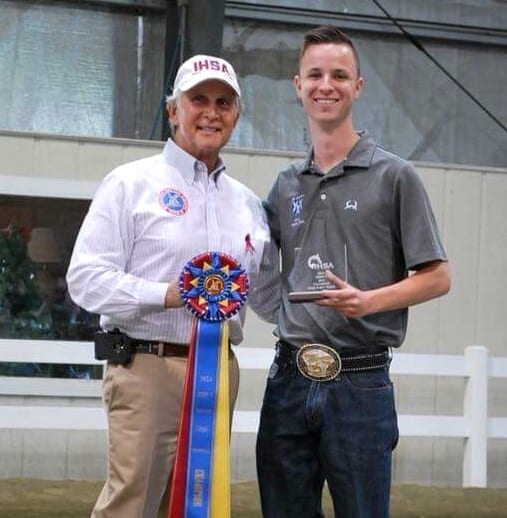 Connor Smith, Competitor for St. Andrews University – IHSA offers students the opportunity to achieve their goals of riding throughout college in addition to continuing their education. For 51 years, IHSA has provided students of all skill levels the ability to remain active in the horse industry. Unlike the NCEA, males are given the same opportunities as females in IHSA. There are six different divisions within the IHSA, which allows more students more opportunities in comparing to the five selected spots in NCEA competitions.
Connor Smith, Competitor for St. Andrews University – IHSA offers students the opportunity to achieve their goals of riding throughout college in addition to continuing their education. For 51 years, IHSA has provided students of all skill levels the ability to remain active in the horse industry. Unlike the NCEA, males are given the same opportunities as females in IHSA. There are six different divisions within the IHSA, which allows more students more opportunities in comparing to the five selected spots in NCEA competitions.
Personally, as a male competitor of IHSA, I am beyond thankful for an organization that offers so much. Throughout my four years of collegiate competition, I have learned not only how to be a more competitive exhibitor, but I have also strengthened my leadership skills and became a better individual overall. For anyone interested in collegiately competing within the horse industry, I would recommend IHSA as it is most definitely for everyone regardless of experience and has so much to offer.
***
IHSA is a well-loved association by their riders and it will continue to grow and thrive. Allowing both female and male equestrians on their teams is something that is seen as a huge benefit, especially to male riders.
While being a male rider can have its advantage because you stand out in an arena of females, there are also downsides to being the only male rider in the class. Overall, being a male rider is something that may be rare, but hopefully, over time, we will see a leveling in the male to female rider ratio.
About the Author: GoHorseShow intern, Catie Donahue, is a first year student studying Biology at the Alfred University. With her Biology major, she plans to attend veterinary school. She competes and shows on the Varsity Hunt Seat and Western IHSA teams. Before attending Alfred University, Catie showed her AQHA gelding in the all-around competing across New England. Since attending school, Catie has retired her gelding and now enjoys trail riding and riding the university horses.


